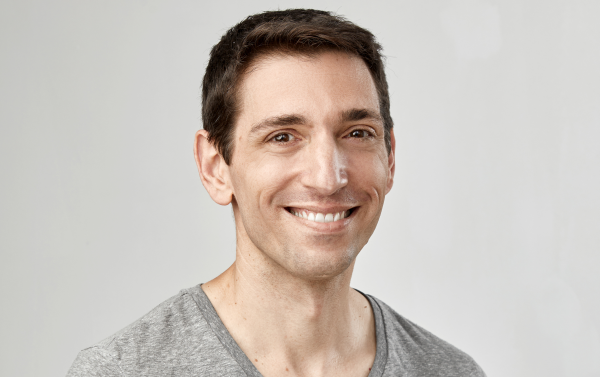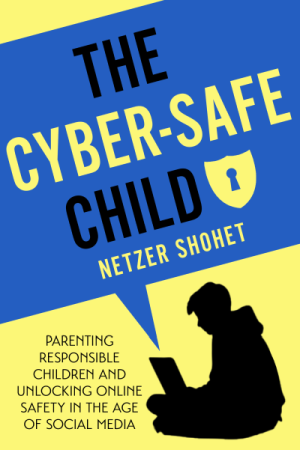by Netzer Shohet
We know the Internet is important to our lives and gives us benefits. We also know the Internet can be dangerous, including inappropriate content, false data, and malicious people. However, we don’t always know how to teach our children to navigate it and avoid its pitfalls.
The internet has put a spotlight on a lack of a process. A process where we would teach our children in an orderly fashion about the tools they require to navigate it. A process that would’ve been beneficial in a pre-digital era, but the Internet has made this process’ lack thereof a critical issue.
Will you offer us a hand? Every gift, regardless of size, fuels our future.
Your critical contribution enables us to maintain our independence from shareholders or wealthy owners, allowing us to keep up reporting without bias. It means we can continue to make Jewish Business News available to everyone.
You can support us for as little as $1 via PayPal at office@jewishbusinessnews.com.
Thank you.
The war in Gaza that was thrust upon us has made the boundaries such a process creates to be even more important to define quickly, and help our children be safe as more mal-intended people world-wide have their eyes set on Israel.
Tips to deal with this situation, for a variety of ages, all revolve around concepts that were always true, but are more important now than ever, in the digital world we live. As time passes we can provide in-depth suggestions on dealing with the Internet, built on the Tips we gave at a younger age.
4th-7th graders (who usually already have smartphones):
- Remember the first basic concept:
As kids we are not allowed to speak with strangers. It is only later in life that we start calling it “meeting new people,” offline and online.
As children, we want to use the Internet to converse with our friends and family, people we know. We want to avoid strangers until an appropriate age. During times of war this is more important than ever. - Whatsapp identifies users using a phone number – A Whatsapp chat is a much safer than social networks that rely on profiles for identification as profiles can be easily falsified or created by software. Using Whatsapp, we recognize more easily talking to unknown numbers and can avoid it. Being on social network is a statement that we are ready to meet new people of all ages.
- Whatsapp has boundaries too – If we connect to an unknown Whatsapp group chat using a link of unclear origin – we are among strangers. Parents must be involved if we are invited or added to an unknown group chat.
- Online games are much safer if we can play with our friends and only them, using a link that was sent privately. If the online game includes an interaction with profiles around the world, and/or chat – it should be considered out of bounds (or at least require more parents’ discretion).
- Remember the second basic concept:
We’re being taught to “Think before we act”. On the Internet we’re being led much more than choosing ourselves where to go. The internet allows us easy action without seeing their consequences as we write in it – and the easier the action, the more we need to remember to pause and think before doing it. - Youtube for example, selects content for us, if we don’t put an effort to prevent it. It will select for us the next video, and that video might not be relevant or even appropriate. Go into a site like Youtube to view what you want and search for, and not what it shows you.
- Forwarding without thinking needs to be stopped from a young age. At those ages, we mostly see forwarding of “chain mail”-like Whatsapp messages. The secret – do not forward without adding something personal. Why did you forward? What is the origin of the message? What do you think of it? And vice versa – disregard forwarded messages without added personalized words. At a later age this easily turns into sharing of fake news and dangerous links.
8th-12th graders – additions/changes
- Ask yourself and your parents – how close are you to being able to “meet new people on your own”?
- If the parents allow using social networks – make sure to use them first to communicate with your friends, before engaging any new profile. Make note of the way you make sure the profile belongs to someone you know.
- During these times we live in, it is especially important not to rush the time where you meet new people online. But if you and your parents decide it is time – decide what characterizes the new people you can meet – age, location, etc. – and decide how to verify those things with your parents.
- While forwarding “chain mail”-like messages is usually less common as the children get older, it is replaced by the ability to share content in social networks. However, it should be dealt with in the same way. Always pause to add personalized words before sharing, and disregarded shared content without it.
Parents – additions/changes
- Remember that we are putting our guards up now because of the war. Meaning, the focus is on setting boundaries – communicating with friends an family vs communicating with strangers, choosing the content instead of passively reading content.
However – looking ahead, remember there’s a process, that gradually extends those boundaries, and you must return to it, otherwise, the boundaries will simply be “broken one day”. - As children grow up, and especially in high school, use instances where they meet “other new children”, via the Internet or offline, to talk to them about the gradual way in which we get to know a new person. When to embrace them as a new friend, when to listen to them, and when not to.
1st-3rd graders (mainly children who know to read but still don’t have a smart phone)
- The focus is less about previous tips, but to understand that our ability to read, turns the Internet (the computer at home or our parents’ smart phones) into a doorway to the outside world. Travelling through it must be done with parents, even if you are just watching Youtube.
- A lot of online content doesn’t fit such a young age. When a parent, for example, watches the news over their phone, it’s important to remind children to give that parent the space. Not to hover over each instance where a parent uses its phone, as shiny and interesting as it seems to them.
When looking at the process of helping our children reach adulthood with the tools and terminology needed to be cyber-safe, there are many more elements to gradually learn and teach.
“The Cyber-Safe Child” book aims to take this process, and wrap it in a book that is thin enough so not to overburden us tired parents. The book shows parents the journey we need to take with our children and each chapter also ends with actionable suggestions that can be done at home. The book tells my story, as I taught, and still am teaching, cyber-safety to my own children and their classmates.
The journey starts in learning the challenges in both sides of communication – expressing ourselves and understanding the other – while talking with our friends and family face to face. It then takes the next step to the increasing challenges when the communication, with the same friends and family, moves online to the chat function. It uses the experience of communication with acquaintances to explain the difficulties of meeting strange content and strange people online, but then moves to talk about the way we can learn to trust new people while taking the necessary precautions, as adults. The book talks both about the information we learn as we hear what they say, but also the information that a dialogue with them can provide us – as we try to both look out for people with bad intentions, but also reach healthy adulthood where we expand our circle of acquaintances. The book doesn’t neglect reminding how the Internet can improve our lives if we learn to avoid its pitfalls.
Netzer Shohet is a father of three children, a university B.Sc. and M.A. graduate with a background as an instructor, and for the past 20 years, has taken central roles in an international company developing cyber-security products.






